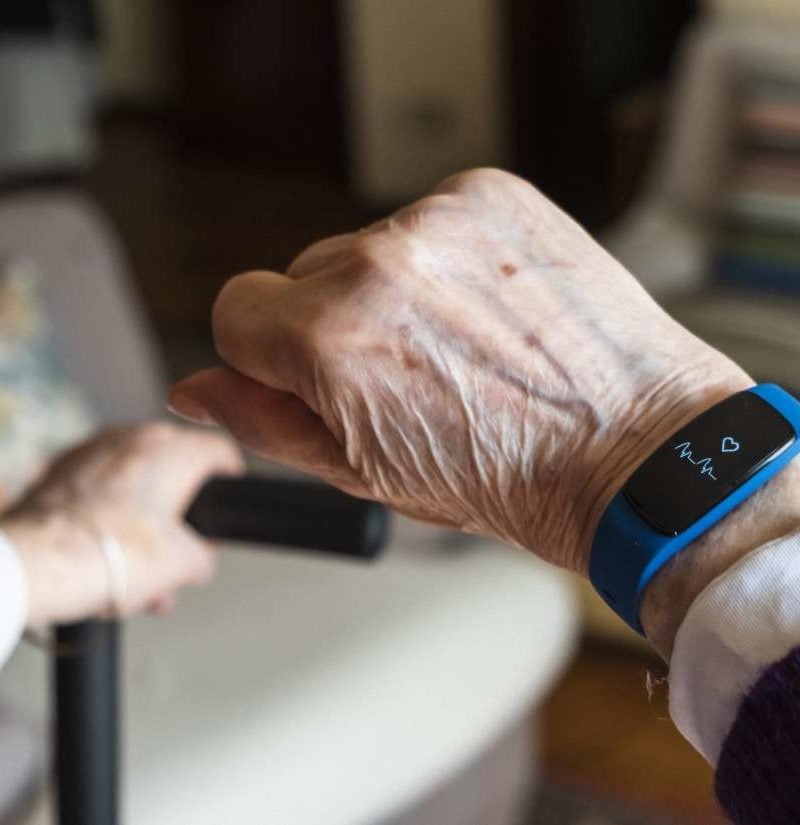Help Them Feel Normal
A disease like Parkinsons can interfere with the normalcy of someones life. Because people may focus so much on the disease and its symptoms, your loved one may start to lose their sense of self. When you talk to your loved one, dont constantly remind them that they have a chronic disease. Talk about other things like their favorite new movie or book.
What Makes Pd Hard To Predict
Parkinsonâs comes with two main buckets of possible symptoms. One affects your ability to move and leads to motor issues like tremors and rigid muscles. The other bucket has non-motor symptoms, like pain, loss of smell, and dementia.
You may not get all the symptoms. And you canât predict how bad theyâll be, or how fast theyâll get worse. One person may have slight tremors but severe dementia. Another might have major tremors but no issues with thinking or memory. And someone else may have severe symptoms all around.
On top of that, the drugs that treat Parkinsonâs work better for some people than others. All that adds up to a disease thatâs very hard to predict.
When And Where Can I Find Help
Support is a central and protective element that helps overcome daily challenges. Start identifying the people around you and the healthcare system or community resources that can help you.
Ideally, you should start building your support system as soon as you learn about the diagnosis. You may not need help immediately but finding resources will be easier now than the day you become overwhelmed.
If you feel like you can no longer cope with the exhaustion, take a break and let others take care of your loved one. Not everything will be done according to your requirements and methods, but you must learn to let go of certain things so that your health does not suffer.
Asking for help may seem difficult at first but remember that it is neither a sign of weakness nor abandonment of your loved one.
Parkinson Québecs toll-free, bilingual and confidential information and referral line is open Monday to Friday, from 8:30 am to 4:30 pm.
LAppui also offers an information service for caregivers, 7 days a week, from 8:00 am to 8:00 pm. You can reach them by phone at 1 855 852-7784 or by email at [email protected]. A resource directory for caregivers is also available on their website.
Ask those around you for help
Involve family and friends by discussing care options if you are not available or in the case of an emergency.
Create a list of professionals and caregivers in your support system
Open a file at the CLSC
Also Check: Rbd And Parkinson’s Disease
Advice For Nursing Care
People with Parkinsons have specific needs and care requirements. Most important is that they receive their medication on time, every time. Nurses should also be aware of the on/off nature of the condition.
Some patients say they are on when their drugs are working and symptoms are mostly under control. If they go off, their symptoms are not under control and it becomes harder for them to move some may stop moving altogether. Patients might change from on to off very quickly, like a switch.
The way in which Parkinsons affects patients can vary from hour to hour and day to day, and it also varies widely between individual patients. The amount of help and support they need also varies. Nurses should therefore listen to patients and their families about how the condition affects them.
It is important to ensure that patients have access to a varied and balanced diet nurses should take account of any swallowing or movement problems that could lead to malnutrition. It is also important to remember to give patients time to answer when talking to them. It may take them time to respond, but this does not mean they are not listening or do not understand.
Discuss Openly With Your Loved One

Together, you can develop strategies to implement them according to the stages of the disease. This will help you maintain the health and quality of life of you and your loved one. Having a game plan can help you maintain your energy to enjoy the good moments with your loved one.
Remember that even though you are there to help them, your loved one wants to maintain their independence and find ways to meet certain needs on their own.
Keep a positive attitude
Symptoms of Parkinsons disease are unpredictable and different for everyone. The physical and mental state of your loved one can change greatly from one day to another depending on medication effectiveness. Some activities, events or travel plans will likely be cancelled or postponed, but your attitude can have a significant impact on how you feel. Focus on what the person with the disease is capable of doing rather than what they cannot do.
Enjoy life and create good memories. The ones you were used to may be less frequent, but you have the opportunity to create new and different enjoyable moments.
Recommended Reading: Housing For Parkinson’s Patients
Thanks For Signing Up
We are proud to have you as a part of our community. To ensure you receive the latest Parkinsons news, research updates and more, please check your email for a message from us. If you do not see our email, it may be in your spam folder. Just mark as not spam and you should receive our emails as expected.
Support For People With Parkinsons Disease
Early access to a multidisciplinary support team is important. These teams may include doctors, physiotherapists, occupational therapists, speech therapists, dietitians, social workers and specialist nurses. Members of the team assess the person with Parkinsons disease and identify potential difficulties and possible solutions.There are a limited number of multidisciplinary teams in Victoria that specialise in Parkinsons disease management. But generalist teams are becoming more aware of how to help people with Parkinsons disease.
Don’t Miss: Parkinson’s Quality Of Life
Strategies And Cues To Help With Movement Problems
When assisting with movement it is important for both of you that it is done safely, taking into account your individual abilities and limitations. Parkinsons is different for every person and symptoms can vary from day-to-day and even hour-to-hour. Strategies that work for one person may not for another, so make a note of what seems to work for both of you. For examples of strategies that may be helpful see Coping Strategies.
As well as assisting the person you care for, using cues or other movement strategies can help protect your back as they minimise the physical effort involved by encouraging the person to be part of the movement.
For detailed information on cueing and movement strategies see How can I help myself? within Falls, Freezing, Gait and Rigidity.
What Lifestyle Changes Can I Make To Ease Parkinsons Symptoms
Exercise: Exercise helps improve muscle strength, balance, coordination, flexibility, and tremor. It is also strongly believed to improve memory, thinking and reduce the risk of falls and decrease anxiety and depression. One study in persons with Parkinsons disease showed that 2.5 hours of exercise per week resulted in improved ability to move and a slower decline in quality of life compared to those who didnt exercise or didnt start until later in the course of their disease. Some exercises to consider include strengthening or resistance training, stretching exercises or aerobics . All types of exercise are helpful.
Eat a healthy, balanced diet: This is not only good for your general health but can ease some of the non-movement related symptoms of Parkinsons, such as constipation. Eating foods high in fiber in particular can relieve constipation. The Mediterranean diet is one example of a healthy diet.
Preventing falls and maintaining balance: Falls are a frequent complication of Parkinson’s. While you can do many things to reduce your risk of falling, the two most important are: 1) to work with your doctor to ensure that your treatments whether medicines or deep brain stimulation are optimal and 2) to consult with a physical therapist who can assess your walking and balance. The physical therapist is the expert when it comes to recommending assistive devices or exercise to improve safety and preventing falls.
Read Also: Parkinson’s Disease Education Handout
How To Prevent Parkinsons
While its not yet known if there are surefire ways to prevent Parkinsons disease, there are a few things experts recommend.
For example, you might try incorporating physical activity into your routine and eating a healthy and balanced diet for a variety of health reasons. So far, research into nutritional supplements is lacking. However, if you have specific dietary needs, talk to your doctor to see if supplementation is appropriate.
Could CBD oil help? Its possible, but we dont know for sure yet. Some research, including , suggest that cannabidiol might help prevent Parkinsons disease. However, the studies are mostly animal studies and there is not yet a body of research involving humans and CBD.
How Is Parkinson’s Disease Diagnosed
Someone with the symptoms of Parkinson’s disease may be sent to see a neurologist, a doctor who specializes in the brain, nerves, and muscles. The neurologist may do some tests, including a brain scan and blood tests. These tests will not make the diagnosis of Parkinson’s disease, but the doctor will want to make sure that there is no other problem causing the symptoms. To diagnose Parkinson’s disease, the doctor relies on a person’s medical history, symptoms, and a physical exam.
Read Also: New Parkinson’s Medication For Hallucinations
Simplifying Activities Of Daily Living For Parkinsons Patients
Many aspects of daily life that we take for granted become increasingly difficult for someone who is living with Parkinsons. Movement symptoms like weakness, tremor, rigidity, balance problems and bradykinesia become especially pronounced in the middle and later stages of the disease. Medications used to treat PD, such as carbidopa-levodopa, dopamine agonists, MAO B inhibitors and anticholinergics, can also have bothersome side effects like dyskinesia , lightheadedness, drowsiness, hallucinations and confusion that interfere with daily routines. Fortunately, there are assistive devices and adaptations that can help patients maintain their quality of life and make caring for someone with Parkinsons easier for family caregivers.
What Are Lewy Bodies

The affected neurons of people with Parkinsons disease have been found to contain clumped proteins called Lewy bodies, but researchers arent yet sure why Lewy bodies form or what role they play in the disease.
Lewy bodies are clumps of a protein called alpha-synuclein . Neurons cant break down these protein clumps, which may lead to the death of these cells.
Some other theories about what causes the death of brain cells in people with Parkinsons disease include free radical damage, inflammation, or toxins.
You May Like: Parkinsonism Vs Parkinson’s Disease
Diagnosis And Management Of Parkinsons Disease
There are no diagnostic tests for Parkinsons. X-rays, scans and blood tests may be used to rule out other conditions. For this reason, getting a diagnosis of Parkinsons may take some time.
No two people with Parkinsons disease will have exactly the same symptoms or treatment. Your doctor or neurologist can help you decide which treatments to use.
People can manage their Parkinsons disease symptoms through:
- seeing a Doctor who specialises in Parkinsons
- medication
- multidisciplinary therapy provided for example, by nurses, allied health professionals and counsellors
- deep brain stimulation surgery .
Medications For People With Parkinsons Disease
Symptoms of Parkinsons disease result from the progressive degeneration of nerve cells in the brain and other organs such as the gut, which produce a neurotransmitter called dopamine. This causes a deficiency in the availability of dopamine, which is necessary for smooth and controlled movements. Medication therapy focuses on maximising the availability of dopamine in the brain. Medication regimes are individually tailored to your specific need. Parkinsons medications fit into one of the following broad categories:
- levodopa dopamine replacement therapy
- dopamine agonists mimic the action of dopamine
- COMT inhibitors used along with levodopa. This medication blocks an enzyme known as COMT to prevent levodopa breaking down in the intestine, allowing more of it to reach the brain
- anticholinergics block the effect of another brain chemical to rebalance its levels with dopamine
- amantadine has anticholinergic properties and improves dopamine transmission
- MAO type B inhibitors prevent the metabolism of dopamine within the brain.
Don’t Miss: Movie Stars With Parkinson’s Disease
Surgery For People With Parkinsons Disease
Deep brain stimulation surgery is an option to treat Parkinsons disease symptoms, but it is not suitable for everyone. There are strict criteria and guidelines on who can be a candidate for surgery, and this is something that only your doctor and you can decide. Surgery may be considered early or late in the progression of Parkinsons. When performing deep-brain stimulation surgery, the surgeon places an electrode in the part of the brain most effected by Parkinsons disease. Electrical impulses are introduced to the brain, which has the effect of normalising the brains electrical activity reducing the symptoms of Parkinsons disease. The electrical impulse is introduced using a pacemaker-like device called a stimulator. Thalamotomy and pallidotomy are operations where the surgeon makes an incision on part of the brain. These surgeries aim to alleviate some forms of tremor or unusual movement, but they are rarely performed now.
Techniques And Tips For Safe Movement
As Parkinsons progresses cues may no longer work well and you may need to help much more with movement. Other treatments such as deep brain stimulationor continuous dopaminergic stimulation may be suggested but in the meantime, it is important to understand the risks of moving someone who is frail or unsteady and to plan any manoeuvre carefully. This will minimise the chance of falling, slipping or damaging your back.
One of the most important principles of helping someone to move safely is to allow them to do as much as possible themselves, and let them control their movement as far as they are able. Avoid taking over or rushing rather allow them to move in their own time and within their own abilities. If you think that you will be unable to safely help someone to move on your own, then ask for assistance before you try.
Never push or pull someone when they need to move and remember that people with Parkinsons are often slow and must be given plenty of time.
Recommended Reading: Does Alan Alda Have Parkinson’s
Stretching To Loosen Stiff Muscles Of Parkinson’s
The following stretching and flexibility exercises can help to relieve stiff muscles, improve flexibility, and make everyday tasks easier:
Do Not Socially Isolate Yourself
Social isolation is one of the factors that contributes the most to the progression of the disease of your loved one and the deterioration of your mental health. Strengthening your relationships and forming new friendships can help you take a step back from your role and better set your boundaries. Have at least one person who you trust and can talk to.
Continue regularly seeing your friends, either at home or elsewhere. Socializing is necessary even if your state, or that of your loved one, causes you to isolate yourself.
You may also benefit from the support of other caregivers. You are not alone and you can learn from their experiences. There are likely support groups specifically for caregivers in your area.
You May Like: Types Of Parkinson’s Disease
Stages Of Parkinsons Disease
Neurologists usually describe the progression of Parkinsons symptoms in stages, using the system known as the Hoehn and Yahr scale. These stages are:
- Stage I Symptoms are seen on one side of the body only.
- Stage II Symptoms are seen on both sides of the body. Theres no impairment of balance.
- Stage III Balance impairment has begun. In this mild- to moderate stage of the disease, the person is still physically independent.
- Stage IV This stage is marked by severe disability, but the person is still able to walk or stand unassisted.
- Stage V The person is wheelchair-bound or bedridden unless assisted.
Living With Parkinson’s Disease

As Parkinson’s develops, a person who has it may slow down and won’t be able to move or talk quickly. Sometimes, speech therapy and occupational therapy are needed. This may sound silly, but someone who has Parkinson’s disease may need to learn how to fall down safely.
If getting dressed is hard for a person with Parkinson’s, clothing with Velcro and elastic can be easier to use than buttons and zippers. The person also might need to have railings installed around the house to prevent falls.
If you know someone who has Parkinson’s disease, you can help by being a good friend.
Read Also: Sindrome De Wolff Parkinson White
Learn Everything You Can About The Disease
Parkinsons disease is a movement disorder. If youre a caregiver for someone living with Parkinsons, youre likely familiar with some of the symptoms of the disease. But do you know what causes its symptoms, how the condition progresses, or what treatments can help manage it? Also, Parkinsons doesnt manifest the same way in everyone.
To be the best ally for your loved one, learn as much as you can about Parkinsons disease. Do research on reputable websites like the Parkinsons Foundation, or read books about the condition. Tag along for medical appointments and ask the doctor questions. If youre well informed, youll have a better idea of what to expect and how to be the most help.